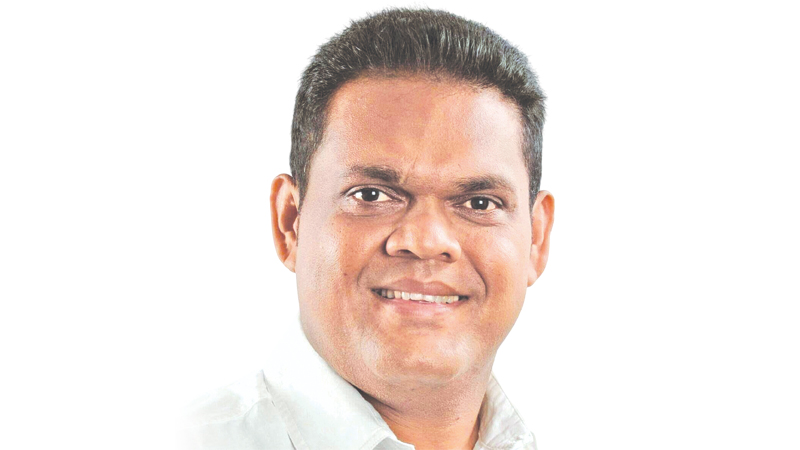Q: Opposition presidential candidates are claiming under a Government led by them, they will seek to change the conditions in the IMF agreement. What effect will this have?
A. If the promises made by the Opposition candidates are implemented, the country could immediately lose its International Monetary Fund program. One of our main objectives is to maintain a positive primary account balance when preparing the budget. However, some parties have proposed revising the IMF program, which could jeopardise this goal.
However, I state with great responsibility that the country will lose its program with the International Monetary Fund immediately if the Opposition plans to abandon President Ranil Wickremesinghe’s program.
The reason is that we are required to keep the budget deficit at 5.2 percent of GDP. If the opposition’s promises are implemented, the deficit will expand to 11.9 percent of GDP.
Maintaining a positive primary account balance of 2.3 percent is a key goal of our program. However, if the opposition’s promises are fulfilled, this balance will shift from a positive 2.3 percent to a negative 4.3 percent.
As a result, the International Monetary Fund program will no longer be viable, and we risk losing it. Furthermore, the agreements we have made with our creditors will also be compromised.
Agreements with private bondholders will also be jeopardised. Therefore, it is unreasonable to make promises without considering these technical details. It is also important to note that decisions in negotiations with entities such as the International Monetary Fund cannot be made within 24 hours; they require considerable time and careful deliberation.
Q: Will you take any steps to provide relief from tax to the people?
A. We are currently in discussions with the International Monetary Fund to provide relief to the people. The President is considering concessions for private-sector taxpayers.
To this end, we began negotiations with the IMF in September 2023. As part of these discussions, we are currently negotiating with the IMF to maintain the annual tax exemption limit at Rs. 1.2 million and to raise the Rs. 500,000 limit to Rs. 720,000. It is expected that tax reductions will be implemented by April 2025, following the finalisation of the related agreements.
Q: Does the Government have a plan to recover revenue lost due to a tax reduction?
A. We have reached an agreement with the IMF to offset the revenue lost due to the tax cuts, ensuring that there will be no additional burden from existing taxes or the introduction of new taxes.
This tax reform will be implemented gradually and without repetition. Some parties have claimed that the local revenue department has approximately Rs. 1,000 billion in outstanding taxes that are not being collected properly.
However, tax appeals have been submitted for Rs. 868 billion of this amount.
By 2023, there were Rs. 188 billion in arrears, and in the first six months of 2024, Rs. 104 billion of those arrears has been collected. This indicates that our reform program has provided relief to taxpayers and improved the efficiency of tax administration.
Q: Will relief efforts for the under priviledged be continued?
A. We have introduced a formal system called Aswesuma to provide relief to the poor and vulnerable in our country.
Through this program, very poor families will receive Rs. 5,000. The Government has allocated Rs. 205 billion for 2.4 million families across three categories. Currently, 1.8 million families are receiving benefits without any political interference.
Q: Many are inquiring about the relaxation of vehicle import limitations. Your comment?
A. We are working to gradually ease the current vehicle import restrictions. Initially, we will relax restrictions on vehicles that significantly contribute to economic activity and those needed for public services. Restrictions on the import of private vehicles will be addressed afterwards. It is important to approach this process systematically.
Q: What is the current status of Sri Lanka’s reserves?
A. We have successfully increased our foreign reserves from $20 million in 2022 to $5.6 billion. During this period, we have also made progress in debt repayment. While we have temporarily halted payments on bilateral loans, we continue to service loans from multilateral institutions and other selected categories. It is crucial that these activities are managed in a way that does not impact our foreign reserves, as was the case in 2022.
Q: Can you briefly elaborate on President Ranil Wickremesinghe’s presidential manifesto released recently?
A. The President’s manifesto, titled “‘Five years of winning the country with Ranil,” has been unveiled. This policy statement focuses on advancing the economic stability we have achieved.
Currently, the most pressing issue in the country is the economy. While many parties have proposed various economic solutions, it seems there is a lack of understanding regarding the feasibility of implementing these proposals.
Many of us, including President Wickremesinghe, worked diligently to rebuild the country’s collapsed economy within two years. Those who attempted to disrupt our efforts and doubted our success should now be questioned about the ethics of their current promises presented to the public.
The President has consistently said that when the country is economically strong, part of the benefits should be used to further strengthen the economy, while the other part should be allocated to the people to reduce the impact of the reform program.
To date, the advantages of the economic stability we have achieved are being systematically passed on to the public.
Accordingly, the President has appointed a committee to address salary increases for public servants and correct existing discrepancies. Based on the committee’s report, the minimum salary for public servants will be raised to Es. 55,000, effective next year.
The public will have the opportunity to decide on September 21 whether to continue these programs and further increase the benefits.
President Wickremesinghe was the one who transformed the country, which had plunged into an economic crisis, into a more stable and livable place. No one else was willing or capable of taking on this challenge.






